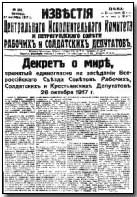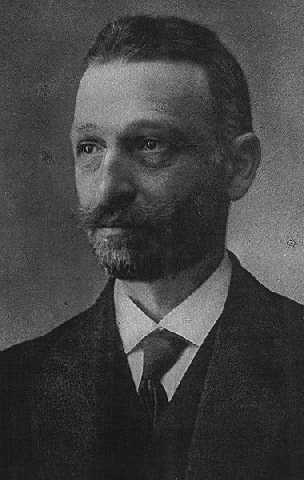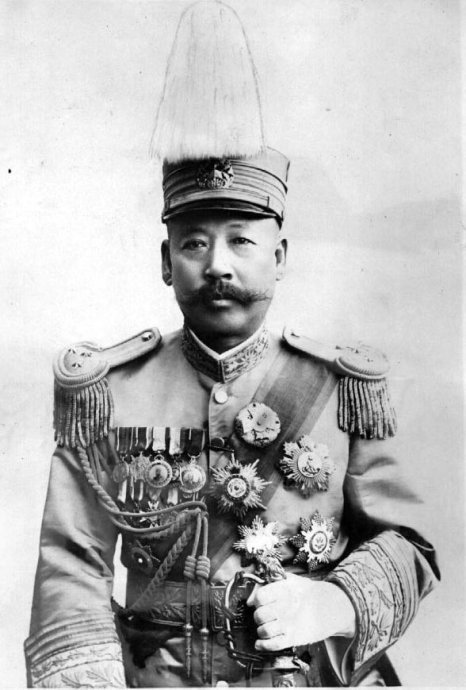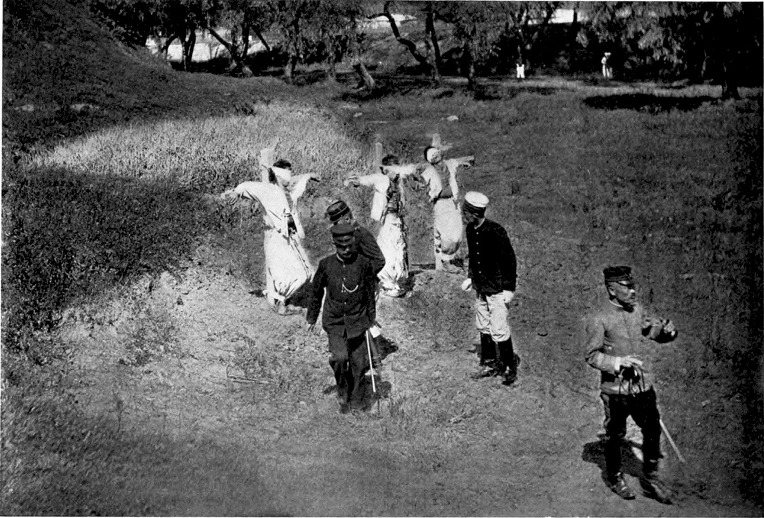
The Revolutionary Doctor
Sun Yat-Sen sipped from a cup of tea that had long grown cold, taking a moment to compose his thoughts before touching his quill to the blank page.
“The Three Principles of the People which I believe are central to the inevitable Chinese revolution are in some cases copied from our traditional ideals, in other cases modeled on European theory and experience and in still others formulated according to original and self-developed theories. They are described as follows:
“I. The Principle of Nationalism
“Revelations of Chinese history prove that the Chinese as a people are independent in spirit and in conduct. Upon this legacy is based my principle of nationalism, and where necessary, I have developed it and amplified and improved upon it. This is intended to be an ideal model for our future nationalistic policy toward races within our national boundaries. Externally, we should strive to maintain independence in the family of nations, and to spread our indigenous civilization as well as to enrich it by absorbing what is best in world civilization, with the hope that we may forge ahead with other nations towards the goal of ideal brotherhood. Unlike the Japanese and Europeans with whom we currently fight for self-determination, we should endeavor to avoid seeing our nationalism through the lens of bigotry, for the belief that certain breeds of man are inferior or superior to others is an illogical construct, born out of a cynical desire for an excuse to subjugate and exploit the weak. Internally, our nationalism must be just that – a patriotic sense of unity towards our nation – and clearly differentiated from race and ethnocentrism so as to unite all those groups within our borders, whether they be Han, Mongol, Tibetan, Manchu or Muslim. A cohesive and inclusive national consciousness must be developed if China is to thrive in the face of imperialist aggression.
“II. The Principle of Democracy
“Since we have had only ideas about popular rights in the past, and no democratic system has yet been evolved in China, we revolutionaries must turn to Europe and America to find a suitably republican form of government. There some countries have become republics and others have adopted constitutional monarchism, under which royal power has shrunk in the face of the rising demand for popular rights.
“All through my revolutionary career I have held the view that China must be made a republic. There are three reasons. First, from a theoretical point of view, there is no ground for preserving a monarchical form of government, since it is widely recognized that the people constitute the foundation of a nation and they are all equal in their own country. In the second place, under Manchu occupation the Chinese were forced into the position of the vanquished, and suffered oppression for more than two hundred and sixty years. While a constitutional monarchy may not arouse deep resentment in other countries and can maintain itself for the time being, it will be an impossibility in China. This is from a historical point of view. A third reason may be advanced with an eye on the future of the nation. That in China prolonged periods of disorder usually followed a revolution was due to the desire of every insurgent to be a king and to his subsequent contention for the throne. If a republican government is adopted, there will be no contention. For these three reasons, I have decided for the republican form of government in order to realize the principle of democracy.
"My second decision is that a constitution must be adopted to ensure good government. The true meaning of constitutionalism was discovered by Montesquieu. The threefold separation of the legislative, judicial, and executive powers as advocated by him was accepted in every constitutional country in Europe. On a tour of Europe and America I made a close study of their governments and laws and took note of their shortcomings as well as their advantages. The shortcomings of election, for instance, are not incurable. In the past China had two significant systems of examination and censoring and they can be of avail where the Western system of government and law falls short. I therefore advocate that the examinative and censorial powers should be placed on the same level with legislative, judicial and executive, thereby resulting in the five-fold separation of powers. On top of that, the system if the people's direct political powers should be adopted in order that the provision that the sovereign power is vested in the people may become a reality. In this way my principle of democracy may be carried out satisfactorily.
“III. The Principle of Livelihood
“With the invention of modern machines, the phenomenon of uneven distribution of wealth in the West has become all the more marked. On my tour of Europe and America, I saw with my own eyes the instability of their economic structure and the deep concern of their leaders in groping for a solution. I felt that, although the disparity of wealth under our economic organisation is not as great as in the West, the difference is only in degree, not in character.
“The situation will become more acute when the West extends its economic influence to China. We must form plans beforehand in order to cope with the situation. After comparing various schools of economic thought, I have come to the realization that the principle of state ownership is most profound, reliable and practical. Moreover, it will forestall in China difficulties which have already caused much anxiety in the West. I have therefore decided to enforce the principle of the people’s livelihood simultaneously with the principles of nationalism and democracy, with the hope to achieve our political objective and nip economic unrest in the bud. Take note that I am dividing the concept of livelihood into four distinct areas, those being clothing, food, housing and transportation. It shall be among the highest duties of the Chinese state to ensure that these areas are met by all citizens to a reasonable degree.
"In light of this, I propose that China establish a land value tax, for the only means of supporting the government is an infinitely just, reasonable, and equitably distributed tax. This will be the foundation upon which we shall build our new system. Furthermore, we …”
“I. The Principle of Nationalism
“Revelations of Chinese history prove that the Chinese as a people are independent in spirit and in conduct. Upon this legacy is based my principle of nationalism, and where necessary, I have developed it and amplified and improved upon it. This is intended to be an ideal model for our future nationalistic policy toward races within our national boundaries. Externally, we should strive to maintain independence in the family of nations, and to spread our indigenous civilization as well as to enrich it by absorbing what is best in world civilization, with the hope that we may forge ahead with other nations towards the goal of ideal brotherhood. Unlike the Japanese and Europeans with whom we currently fight for self-determination, we should endeavor to avoid seeing our nationalism through the lens of bigotry, for the belief that certain breeds of man are inferior or superior to others is an illogical construct, born out of a cynical desire for an excuse to subjugate and exploit the weak. Internally, our nationalism must be just that – a patriotic sense of unity towards our nation – and clearly differentiated from race and ethnocentrism so as to unite all those groups within our borders, whether they be Han, Mongol, Tibetan, Manchu or Muslim. A cohesive and inclusive national consciousness must be developed if China is to thrive in the face of imperialist aggression.
“II. The Principle of Democracy
“Since we have had only ideas about popular rights in the past, and no democratic system has yet been evolved in China, we revolutionaries must turn to Europe and America to find a suitably republican form of government. There some countries have become republics and others have adopted constitutional monarchism, under which royal power has shrunk in the face of the rising demand for popular rights.
“All through my revolutionary career I have held the view that China must be made a republic. There are three reasons. First, from a theoretical point of view, there is no ground for preserving a monarchical form of government, since it is widely recognized that the people constitute the foundation of a nation and they are all equal in their own country. In the second place, under Manchu occupation the Chinese were forced into the position of the vanquished, and suffered oppression for more than two hundred and sixty years. While a constitutional monarchy may not arouse deep resentment in other countries and can maintain itself for the time being, it will be an impossibility in China. This is from a historical point of view. A third reason may be advanced with an eye on the future of the nation. That in China prolonged periods of disorder usually followed a revolution was due to the desire of every insurgent to be a king and to his subsequent contention for the throne. If a republican government is adopted, there will be no contention. For these three reasons, I have decided for the republican form of government in order to realize the principle of democracy.
"My second decision is that a constitution must be adopted to ensure good government. The true meaning of constitutionalism was discovered by Montesquieu. The threefold separation of the legislative, judicial, and executive powers as advocated by him was accepted in every constitutional country in Europe. On a tour of Europe and America I made a close study of their governments and laws and took note of their shortcomings as well as their advantages. The shortcomings of election, for instance, are not incurable. In the past China had two significant systems of examination and censoring and they can be of avail where the Western system of government and law falls short. I therefore advocate that the examinative and censorial powers should be placed on the same level with legislative, judicial and executive, thereby resulting in the five-fold separation of powers. On top of that, the system if the people's direct political powers should be adopted in order that the provision that the sovereign power is vested in the people may become a reality. In this way my principle of democracy may be carried out satisfactorily.
“III. The Principle of Livelihood
“With the invention of modern machines, the phenomenon of uneven distribution of wealth in the West has become all the more marked. On my tour of Europe and America, I saw with my own eyes the instability of their economic structure and the deep concern of their leaders in groping for a solution. I felt that, although the disparity of wealth under our economic organisation is not as great as in the West, the difference is only in degree, not in character.
“The situation will become more acute when the West extends its economic influence to China. We must form plans beforehand in order to cope with the situation. After comparing various schools of economic thought, I have come to the realization that the principle of state ownership is most profound, reliable and practical. Moreover, it will forestall in China difficulties which have already caused much anxiety in the West. I have therefore decided to enforce the principle of the people’s livelihood simultaneously with the principles of nationalism and democracy, with the hope to achieve our political objective and nip economic unrest in the bud. Take note that I am dividing the concept of livelihood into four distinct areas, those being clothing, food, housing and transportation. It shall be among the highest duties of the Chinese state to ensure that these areas are met by all citizens to a reasonable degree.
"In light of this, I propose that China establish a land value tax, for the only means of supporting the government is an infinitely just, reasonable, and equitably distributed tax. This will be the foundation upon which we shall build our new system. Furthermore, we …”
Last edited:





























